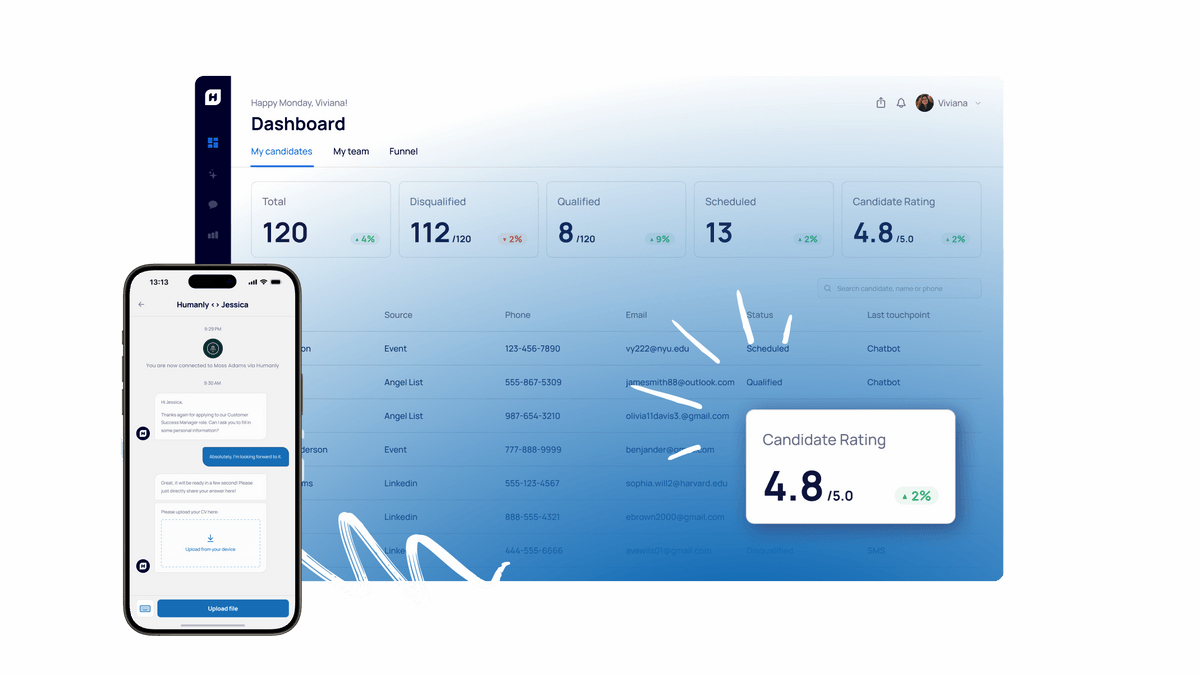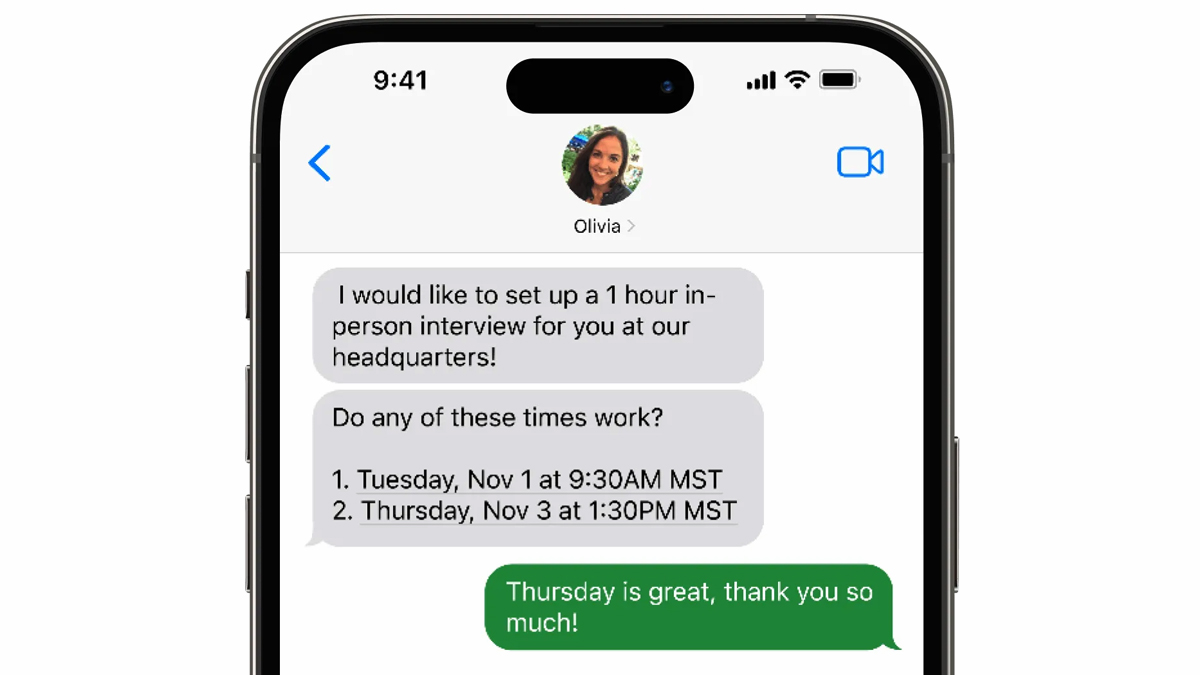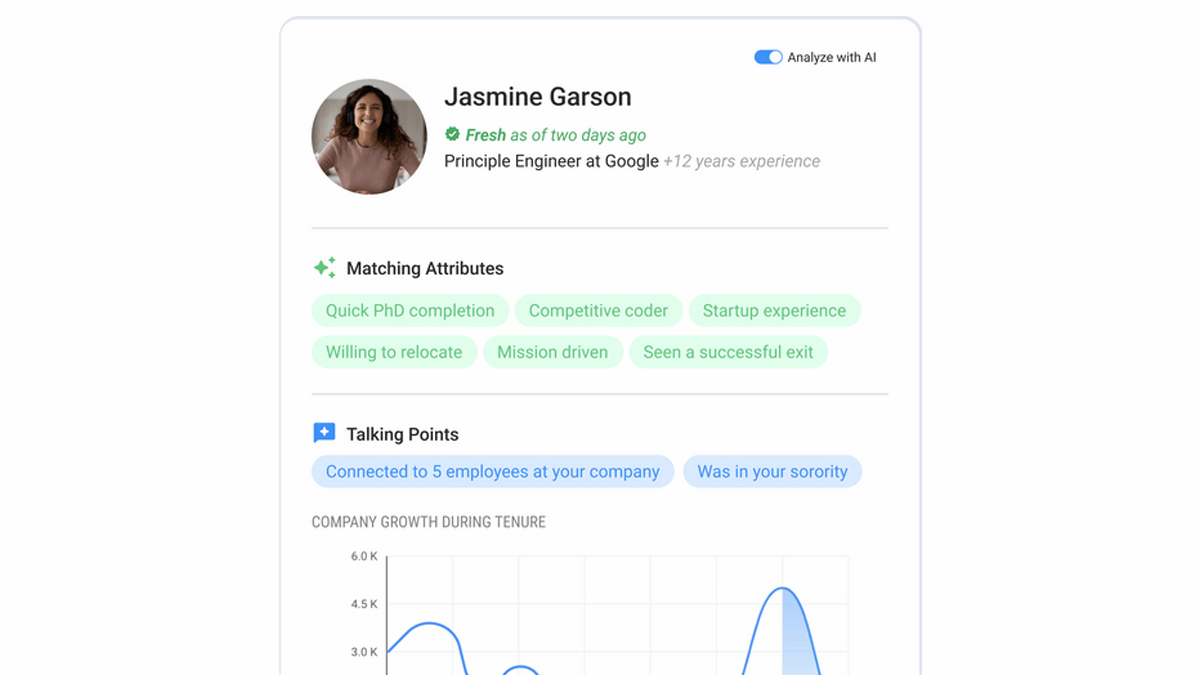Affiliate links on Android Authority may earn us a commission. Learn more.
The best AI tools for recruiting

Recruiting can be a stressful task. Even if you’re trying to be generous to people, and your company is willing to train or apprentice new hires the way every business should, it can be difficult to narrow down ideal candidates versus those that just look good on paper — never mind running them through the interview process. Generative AI may not be the be-all and end-all solution, but if you understand the tech’s limitations, it can speed up hiring and enhance its results.
The best AI tools for recruiting
AI-based recruiting tools can range in scope from do-it-all suites to bots that handle narrow tasks. No AI can literally handle the entire recruiting pipeline, of course. Despite the media hype, we’re probably decades away from AI that can match human awareness and intelligence. That said, just by gravity, we’ve ended up skewing towards suites in this list.
Humanly

This tool promises an “AI copilot” — an increasingly popular buzzword — for just about every step of the recruiting process, including screening, scheduling, notes, and follow-ups. We like the overall clarity and simplicity of the software’s interface, and those notetaking functions extend to things like Zoom and Google Meet interviews, though you should still be paying attention and reading between the lines.
An unusual focus of the suite is avoiding hiring biases, and its developer doesn’t just mean demographics — it means a fair analysis of things like candidate experience. You can also hook in outside software such as Workday, iCIMS, Greenhouse, Lever, Taleo, and Jobvite.
You’ll have to contact Humanly.io about pricing. That’s pretty common with enterprise-level tools, though.
Fetcher

Fetcher is similar to Humanly in some respects, but concentrated on three tentpoles: finding candidates, contacting them, and delivering general analytics. In fact Fetcher promises to use both AI and (with the top subscription tiers) its own experts to help track down candidate profiles, which could be a boon if you don’t trust AI that much. You can also specify diversity goals if your organization is too heavily weighted in one direction.
When contacting people, the tool uses automated email campaigns with tracked responses. AI is then used to flag the most interested responders, so it’s likely that the hungriest candidates will be the ones on your radar.
All the while you’ll get a dashboard showing the engagement, diversity, and efficiency of recruiting. As with Humanly there are a number of outside integrations available, such as Slack.
Fetcher is free if you’re willing to limit yourself to 50 profiles per month, but realistically you’ll end up paying at least $149 per user, per month, which expands the cap to 4,000 profiles annually and is required for ATS, calendar, and Slack integrations. You need to spend at least $549 per month get human help finding candidates.
Paradox

Paradox emphasizes the conversational aspect of its AI, directing screening, scheduling, and even parts of hiring events and onboarding via text messaging, though on the corporate end you don’t have to use your phone all the time. The tool has mobile and desktop clients, which also handle functions such as drafting offer letters and opening and closing available positions.
The approach is a bit unorthodox, and it might be telling that some of the company’s biggest clients are McDonald’s, Supercuts, Molly Maid, and Olive Garden — all businesses with low entry requirements. Nevertheless, if you’re not trying to put candidates through a Google- or New York Times-style wringer, this might be what you’re after. Integrations include the likes of Greenhouse, Lever, Taleo, iCIMS, Workday, and others.
Findem

Findem is distinguished by what it calls “attributes” — that is, AI-generated labels meant to better illustrate a candidate than the usual bulletpoints like education or work experience. A candidate might for instance be tagged with attributes like “quick PhD completion” or “willing to relocate,” as you can see above.
Beyond sourcing candidates, including meeting diversity goals, there’s an emphasis on “nurturing” potential hires or rediscovering candidates that might have been glossed over in the past. Findem also promises analytics for internal recruitment trends as well as the external market, say if you’re wondering which companies your best candidates are currently working for, or where a large number of them are living. It’s even suggested that you might use this data to establish new offices, for example if you could do better by attracting untapped Canadian talent.